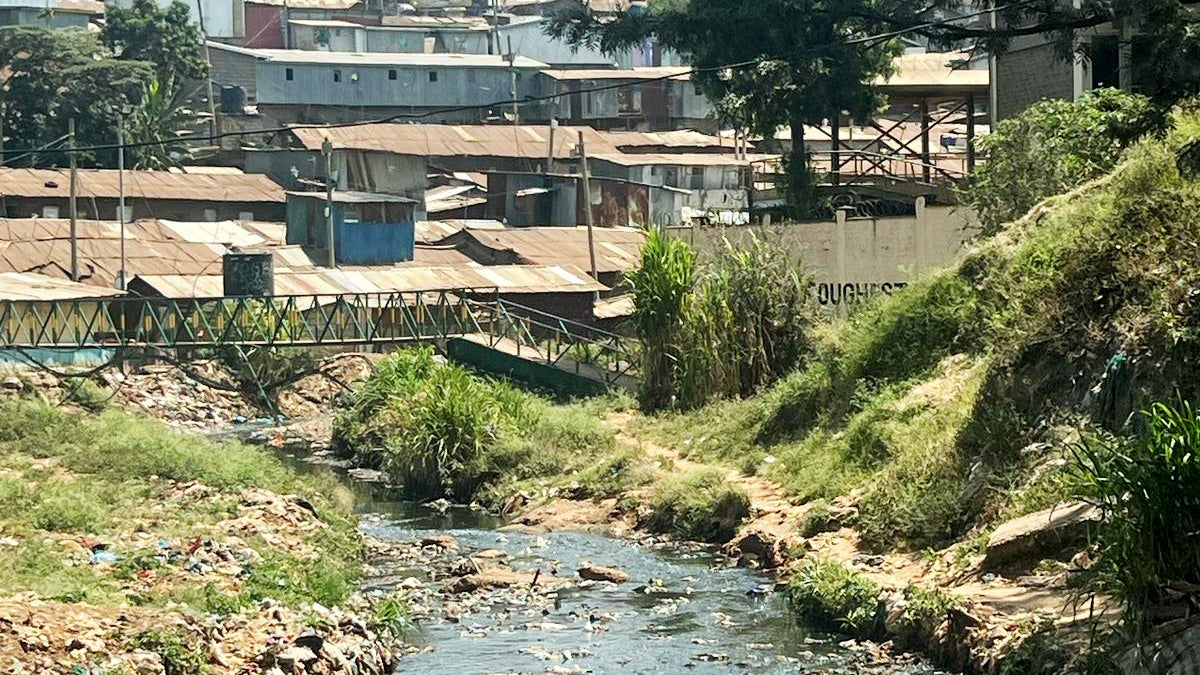School of Health Students Travel to Kenya To Learn Local Solutions For Community Needs
Kibera (pictured), an underdeveloped area in Nairobi, Kenya, does not have access to public water services. The nonprofit SHOFCO purifies water drawn from underground and then makes it accessible to residents at a subsidized rate.
(April 9, 2025) — School of Health students spent their spring break in Nairobi, Kenya, visiting government agencies, international companies and nongovernment organizations’ offices in order to better understand innovations in health in one of Africa’s most dynamic economies. The trip is run by the African Studies program in the Walsh School of Foreign Service (SFS) and co-led by faculty from the School of Health (SOH).
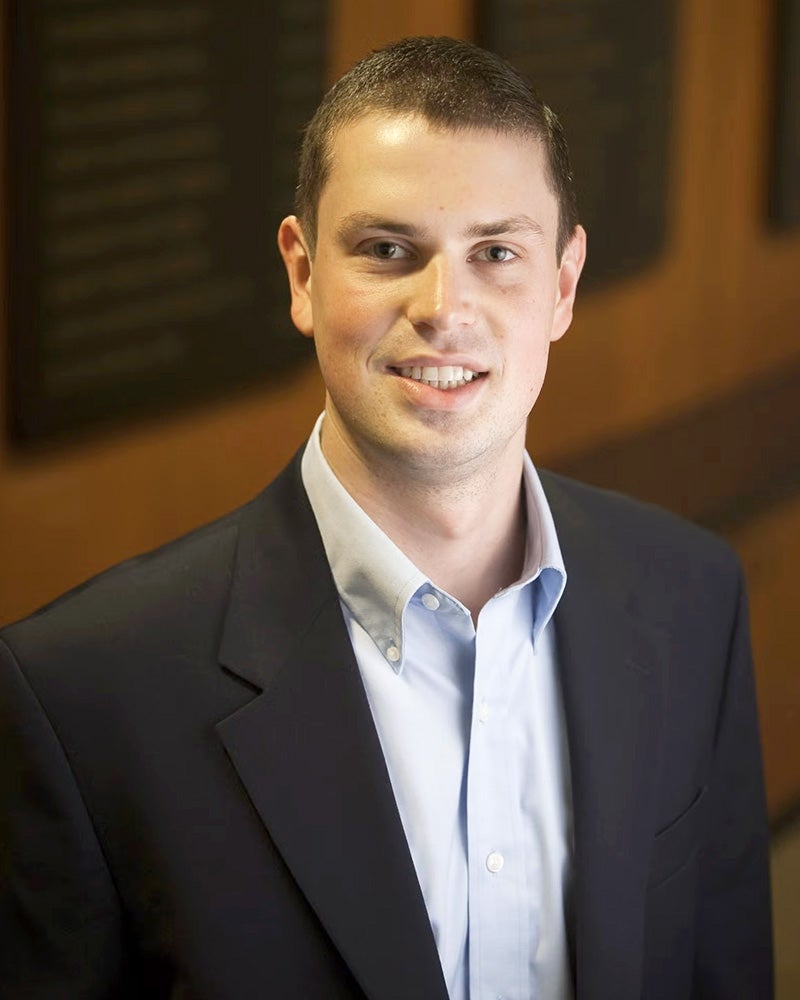
John Kraemer, JD, MPH
“In organizing the trip, we wanted to focus on Kenyan development broadly construed, so we try to organize meetings with a lot of leaders from government, health organizations, human rights and the private sector,” said John Kraemer, JD, MPH, associate professor in the Department of Health Management and Policy in the School of Health, who co-led the March trip. “The subtext of these meetings is that health, economic development and governance are all inextricably linked.”
The week was filled with meetings and presentations with organizations ranging from large international companies, such as VISA, to hyperlocal nonprofits like SHOFCO.
Finding Local Solutions
“The tour of Kibera with SHOFCO stood out to me with how many different projects, from providing clean water to addressing gender-based violence, the nonprofit was involved with in this area of Nairobi that has a large number of people living together in informal settlements in close quarters,” said Ingrid Matteini (H’25), a health care management and policy major.
Kibera does not have access to public water services and many dwellings do not have formal plumbing, leaving the area prone to waterborne illnesses.
“SHOFCO created this impressive clean water system, where water from underground is accessed through a series of boreholes that is then filtered through tubing throughout Kibera,” said Matteini. “SHOFCO is also hyperfocused on local details, such as thinking through the whole process of residents getting clean water by realizing that the buckets people bring to fill up could be contaminated, so they add small amounts of chlorine to the water to kill any bacteria that may be present in these canisters.”
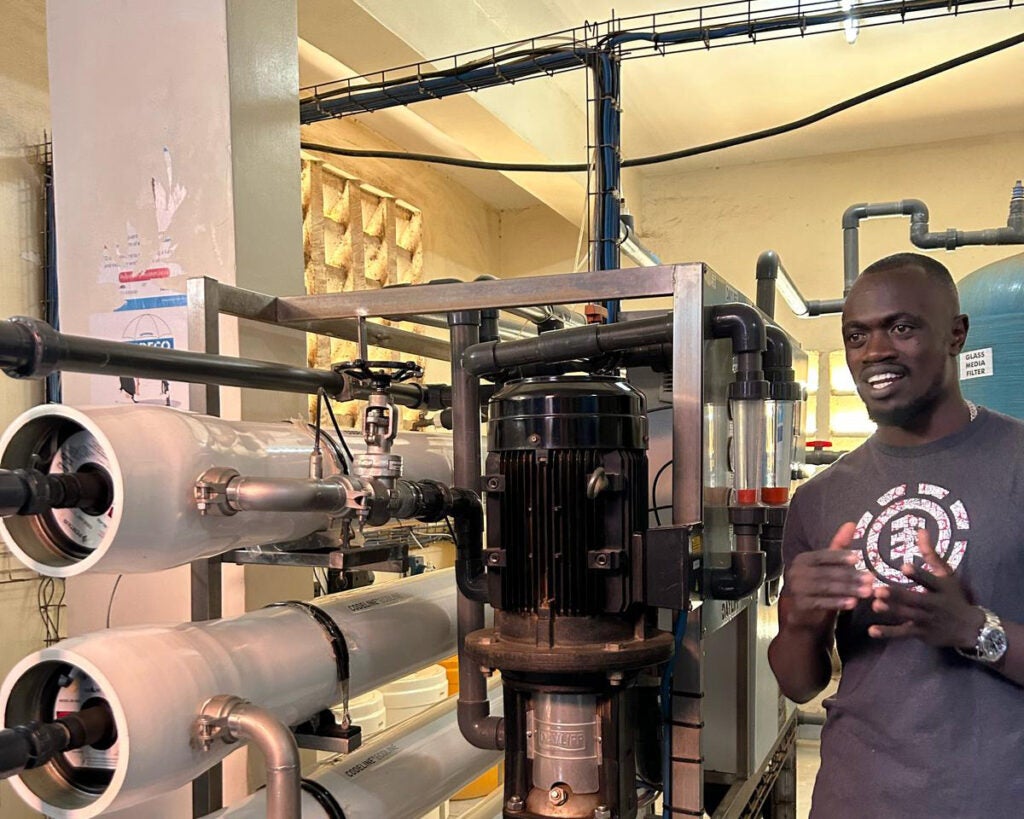
A tour of SHOFCO’s clean water system for Kibera impressed the students.
Matteini described a process in which residents visited local water stations throughout the community and retrieved clean water at a subsidized rate using a key fob and digital currency.
The widespread use of phones and digital currency in Kenya was also notable for students. “East Africa is generally misunderstood to be behind technologically,” said Matteini. “There’s so much energy around e-commerce and digital currency that the area has become a hub for innovation.”
Another example of how SHOFCO was attuned to local sensibilities that stuck with Matteini was how older men led focus groups for women who had experienced gender-based violence.
“The two older men leading these sessions, which were focused on teaching women how to generate income for themselves in order to not be dependent on an abusive partner, were very attuned to the gender culture of the area, where some older community members preferred these sessions be led by people older than themselves,” said Matteini.
“Organizations like SHOFCO showed how, in order to address social determinants of health, the work needs to be hyperlocal and attuned to the needs of the community and involve members from the community in order to be effective,” said Matteini.
Finding Sustainable Solutions
A site visit to Koko, a company focused on providing alternative energy sources for Kenyans, also resonated with School of Health students on the trip.
“Most Kenyan families use charcoal or kerosene stoves in their homes and inhale smoke that could result in long-term health consequences as well as environmental pollution,” said Michelle Hu (H’27), a health care management and policy major.
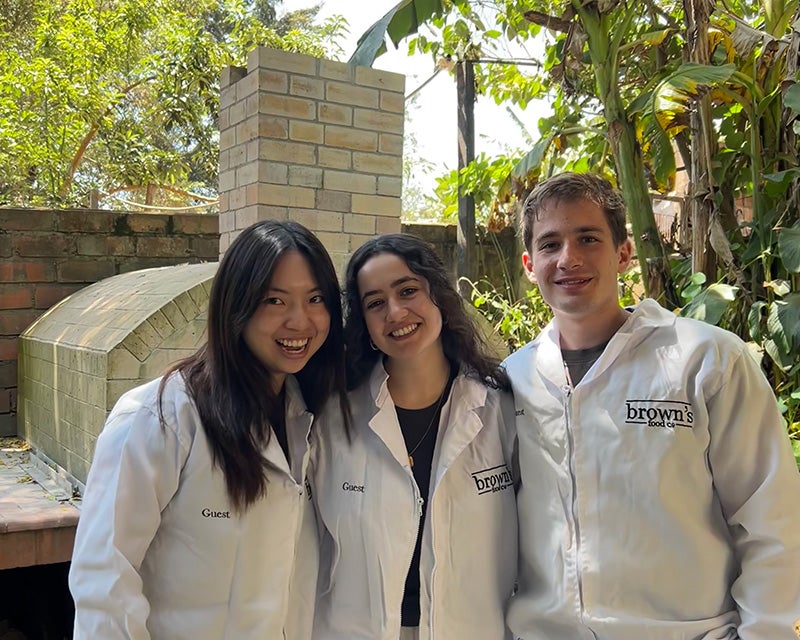
Michelle Hu (H’27), pictured left, appreciated the chance to discuss trip experiences, like a tour of Brown Food Co., which makes cheese, with classmates.
Hu described a process in which Koko uses a byproduct from local sugar farmers to create a bioethanol that is then used as a clean fuel source for stoves. The company set up distribution centers for people to buy fuel using digital currency on their phones in a similar manner to SHOFCO’s water stations.
“The company found a sustainable model not only in how it produces fuel, but also in how it uses government carbon credits as a means of revenue,” said Hu. “It was insightful to see a company be economically sustainable while focused on helping the environment and people’s health.”
Time For Fellowship
Matteini and Hu both expressed that the time spent discussing the trip with their fellow classmates and faculty was one of the most memorable parts. Hu was especially grateful for the opportunity to meet students from the SFS whom she had not previously had the chance to interact with.
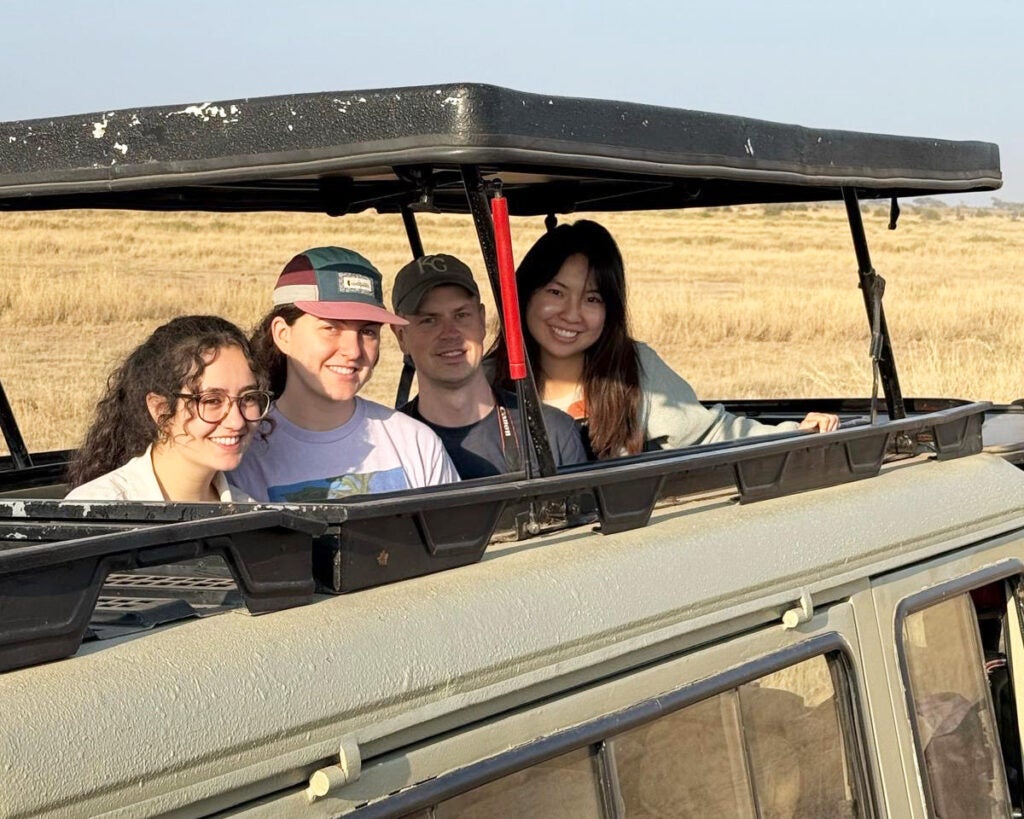
Students and faculty spent the last two days of the trip on a safari.
“The SFS students brought such interesting perspectives, not only about the site visits, but also just about traveling in general and trying to immerse yourself authentically in a culture by talking directly to local people.”
The students and faculty spent the last two days of the trip on a safari before heading back to the United States. “The safari was great. It was a little bit of vacation and a nice break before heading back home,” said Matteini.
“I would 100% recommend this trip to any of my fellow School of Health classmates,” said Matteini. “As a health care management and policy major, our studies are very focused on the U.S. health care system, so it’s really powerful to travel to other places and see how people who are really passionate about health interventions go about their work in addressing community needs.”
Heather Wilpone-Welborn
GUMC Communications

